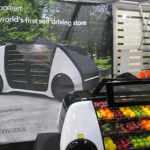Technologies such as artificial intelligence and machine learning are game changers. They have a growing effect on the way people work in Marketing and Market Research.
Marketing and Market Research professionals are increasingly finding efficiencies from automation. From data collection and analysis, even to interpretation, market research has changed. The automation trend allows both users and providers to focus on predictive analytics.
Automation is a Rising Trend
Automation benefits marketers. Even before any marketing activity starts, marketing managers want answers to specific questions. They seek a Return on Investment (ROI). Now, ad platforms include predictions of the number of clicks. Managers also want answers when an ad campaign is live, and when completed. Automation saves brands money with predictions and targeting, and speeds up the gathering of results and data.
Companies can create and deploy tests quicker with automation. Dashboards and reporting portals are ways that clients can access findings and track analytics. Automation enables companies to rapidly uncover valuable market feedback to make changes and improvements.
Automation has enabled the rise of predictive analysis, which forecasts future behavior. Predictive analysis answers salient questions. These can include:
- Who is likely to buy our product/service?
- What is the best price for our product to increase profitability?
- Who is our most valuable customer?
The discipline involves statistics, text analytics, data mining, and multivariate statistical modeling. These tools recognize patterns and relationships in unstructured and structured information. Statistics is an important part of Behavioral Science, which predicts why consumers behave the way they do.
Machine Learning also uses statistical techniques for predictive purposes and can be helpful in filtering responses. Algorithms are on the rise in business and have the potential to improve decision-making.
Automation in Market Research
Market Research provides critical information about the business landscape. It plays a significant part in developing services and products. It also plays a role in getting them to the marketplace and advertising them to consumers. It also helps companies to define who and where their consumers are.
In short, market research allows businesses to pursue the most profitable growth opportunities. Market research can help companies to measure and weigh opportunities. This research enables brands to highlight those with the highest profit potential.
Automation is a discipline that helps companies to rapidly test and make predictions. The downside is that automation may miss the human connection evident in Face-to-Face and observation research. Used with other techniques such as Face-to-Face and qualitative techniques, it can be valuable for some companies. “Hybrid” methodologies that combine multiple methods can be especially useful in making sense of a complex customer decision journey.
Examples of Automation in Marketing
Finding Samples
The process of finding samples has become more and more automated. Marketers can now use the filtering and selection technology behind aggregation services.
Surveys
Surveys are one of the oldest forms of research automation. It allows consumers to respond to surveys online. It also ensures that they only answer the questions that are relevant to them.
Customer Support
Businesses are also using automating responses to customers. For example, if several consumers have a particular complaint, the marketer can generate an automatic response. These automated answers free up the support team to deal with other issues.



